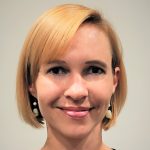About
The Professional Communication Program (PCP) offers small, immersive courses that help undergraduate and graduate students learn how to become more effective storytellers, researchers, interpreters, writers, and speakers. Housed in the WSE’s Center for Leadership Education, the PCP hosts the CLE’s popular Marketing & Communications minor and a free ESL consultation program.
Using experiential, real-world-based assignments designed by teacher-practitioner faculty, all PCP courses emphasize interactive, engaging exercises that help students learn how to translate their academic and technical degrees into the professional world. Students also gain valuable experience and make important connections to professional mentors in publishing, marketing, social media, public health, entrepreneurship, consulting, engineering, and social enterprise.
PCP also works with campus partners to co-create programming to help meet accreditation demands, fulfill grant requirements, and pursue interdisciplinary projects.
661.110 Professional Writing & Communication (W)
This course teaches students to communicate effectively with a wide variety of specialized and non-specialized audiences. To do this, students will write proposals in response to JHU-, Baltimore-, or Maryland-based initiatives that focus on a specific area of interest. Potential topics include initiatives to improve urban sustainability, resiliency, health disparities, social justice, mental health/well-being, government/municipal services, and other relevant areas. The class emphasizes writing clearly and persuasively, leveraging evidence effectively, working with key stakeholders, creating appropriate visuals and infographics, developing oral presentation skills, working in collaborative groups, giving and receiving feedback, and simulating the real-world environment in which most communication occurs. Projects include resumes, cover letters, memos, proposals, technical reports, posters, and slides. All sections are open to students in any discipline or major.
661.111 Professional Writing & Communication for International Students (W)
This course teaches ESL students to communicate effectively with a wide variety of specialized and non-specialized audiences and will provide ESL-specific help with grammar, pronunciation, and idiomatic expression in these different contexts. Projects include production of resumes, cover letters, proposals, instructions, reports, and other relevant documents. Class emphasizes writing clearly and persuasively, creating appropriate visuals, developing oral presentation skills, working in collaborative groups, giving and receiving feedback, and simulating the real world environment in which most communication occurs. Co-listed with 661.611. No audits.
661.128 Improvisational Techniques for Communication
Science and engineering are disciplines which mandate immersive study, attention to detail, and extreme forethought. Is it possible, then, that as students condition themselves to meet these needs, they compromise their ability to navigate impromptu social situations, public speaking events, and the like? Following the lead of innovative communities and businesses, this class turns to improvisation techniques to develop communication skills, encourage creative problem solving, and support teamwork. Through imaginative movement and play, improv encourages students to hone their abilities to initiate, listen, react, and connect. Using the power of “Yes, And…”, improv’s most famous aphorism, students learn to respond confidently and spontaneously to unforeseen challenges.
661.250 Oral Presentations (W)
This course is designed to help students push through any anxieties about public speaking by immersing them in a practice-intensive environment. They learn how to speak with confidence in a variety of formats and venues – Including extemporaneous speaking, job interviewing, leading a discussion, presenting a technical speech, and other relevant scenarios. Students learn how to develop effective slides that capture the main point with ease and clarity, hone their message, improve their delivery skills, and write thought-provoking, well-organized speeches that hold an audience’s attention. No audits.
661.251 Oral Presentations for International Students (W)
This course is designed to help students push through any anxieties about public speaking by immersing them in a practice-intensive environment. They learn how to speak with confidence in a variety of formats and venues – Including extemporaneous speaking, job interviewing, leading a discussion, presenting a technical speech, and other relevant scenarios. Students learn how to develop effective slides that capture the main point with ease and clarity, hone their message, improve their delivery skills, and write thought-provoking, well-organized speeches that hold an audience’s attention. Special attention will be placed on diction, pronunciation, tone, pace and emphasis of language. Additional attention also will be given to syntax as well as non-verbal communication patterns. Co-listed with 661.651. No audits.
661.275 Improvisational Techniques for Collaboration
In this online improv class, students will dive deeper into the world of improvisation, growing their ability to present information and navigate complex group dynamics, exploring third party collaborations and negotiations. Students will use the principles behind improvisation to enhance their success virtually and in the “real world.” Each class will include a variety of immersive activities such as mindfulness and movement; journal prompts; group games; peer lead discussions; role play exercises; and personal presentations. The small class size will allow every student to be participatory, create a close knit learning community, and receive ample feedback. At the end of the semester, students will be able to confidently collaborate with their peers and effectively engage their audience.
661.301 Writing for the Law (W)
This course teaches students to communicate effectively in various modes of legal discourse that are fundamental to the practice of law. Students will engage in writing nearly every session and will learn the basics of legal writing, editing (both the student’s and others’ work), and written/oral advocacy skills. Students can expect to work with litigation-related documents such as pleadings, preliminary and dispositive motions, and appellate briefs as well as non-litigation-related documents such as opinion articles, publications, essays, and various business-related contracts.
661.306 Special Topics in Professional Writing: Freelance Travel Writing (W)
In this course, students will learn the fundamentals of magazine and travel writing as well as best practices for working as a freelance writer. After gaining familiarity with the genre by reading several “classics” of travel writing and a selection of exemplary magazine articles, students will learn how to brainstorm ideas, plan research, interview skillfully, take useable photos with smartphones, polish pitches to editors, and write/revise/submit work for publication. Students will use Washington, DC, and Baltimore as the basis for most of our work but can also choose to travel farther afield. At the end of the course, students will create an ePortfolio to showcase their articles, profiles, reviews, trade placements, blog entries, and pitches/queries to potential editors. Recommended: one prior writing course.
661.315 Culture of the Engineering Profession (S,W)
This course focuses on building understanding of the culture of engineering while preparing students to communicate effectively with the various audiences with whom engineers interact. Working from a base of contemporary science writing (monographs, non-fiction, popular literature and fiction), students will engage in discussion, argument, case study and project work to investigate: the engineering culture and challenges to that culture, the impacts of engineering solutions on society, the ethical guidelines for the profession, and the ways engineering information is conveyed to the range of audiences for whom the information is critical. Additionally, students will master many of the techniques critical to successful communication within the engineering culture through a series of short papers and presentations associated with analysis of the writings and cases. For Engineering sophomores, juniors and seniors or by permission of instructor. No audits.
661.316 Culture of the Media Profession (W)
This course focuses on building understanding of the culture of the media and publishing professions while preparing students to communicate effectively within it. Working from a base of contemporary writing on professions in media, students will engage in discussion, argument, and project work to investigate the culture of media and challenges to that culture, the impacts of media on society, and the ethical guidelines for the profession. Additionally, students will master many of the techniques of critical media production, editing, and publication through a series of short papers and presentations. Students must have previously taken a writing intensive course.
661.317 Culture of the Medical Profession (S, W)
This course is designed to engage students in thinking critically and empathetically about key issues encountered by healthcare professionals. The course, taught in seminar style, explores topics ranging from health disparities and healthcare costs to provider-patient communication and socioeconomics of health care by examining cases and readings that highlight the problems that doctors, administrators, researchers, nurses, and other healthcare professionals face on a daily basis. Guest speakers with a range of clinical backgrounds from physicians to social workers also come to class in order to share their path into medicine and daily life as a medical professional. Course content is focused around three specific course goals: 1) teaching students to consider the culture of the medical profession in general as well as the culture of specific institutions and therapeutic areas; 2) equipping students with the framework to understand health care from diverse socioeconomic and cultural contexts; and 3) providing students opportunities to exercise the communication skills required in healthcare settings.
661.355 Special Topics in Professional Writing: Blogging about Food and Culture (W)
Explore Baltimore’s thriving food and restaurant scene while learning the art of criticism and best practices for blogging. In this journalism class taught by former New York Times Magazine editor Sarah Smith, students will study the work of some of the best writers in the field, from Laurie Colwin to Pete Wells, and using that work as a guide, write their own essays, reviews and features, which the class will discuss in a workshop setting. Instruction will include the basics of reporting and research; differences in writing for print and online media; ethics and legal concerns; and practical advice for pitching editors and setting up blogs. Recommended Course Background: At least one previous writing course.
661.370 Storytelling With Data
Humans have used stories as a compelling way to share knowledge since the beginning of time. In the 21st century, information is being created at an astounding rate and we seek to analyze and communicate this new knowledge. Stories about public health statistics, economic indicators, and societal/cultural trends have become increasingly common and urgent in news cycles. Other uses of communicating data can help to influence policy discussions or promote future research funding. In this course, you will learn techniques and methods for displaying data and telling the accurate story your data has to say. You will also learn a number of design principles necessary for creating compelling and beautiful data visualizations and presentations. Although the course is not tool-specific, students will gain experience working with MS Excel and Tableau. No programming experience is necessary. Students may choose to work with their own dataset or, if they have none, will be given one by the instructor.
661.630 Improving Writing and Communication Skills for Scientists and Engineers (W)
This course is designed to help engineers and scientists improve their communication skills in an immersive, practice-intensive environment that includes simulation in a wide variety of scenarios, formats, and venues. Throughout the semester, students will work on polishing a journal article or dissertation chapter. Simultaneously, students will learn how to translate that same material to use in a variety of public speaking modalities—job interviewing, department talks, networking sessions, spontaneous “elevator pitch” opportunities, and other relevant scenarios. The course emphasizes developing clarity, becoming more emotionally intelligent, honing a main message, developing effective slides, improving delivery skills and confidence, and translating technical expertise to a wide variety of audiences.
We are pleased to offer free ESL consultations to JHU undergraduates, WSE graduate students and JHU graduate students taking any course or module within the Center for Leadership Education. Students may register for ESL consultations once per week.
Visit our ESL Consulting page for more information on how to register and reserve an appointment.
Services
If you are a non-native speaker of English and need help with any of the following topics, we encourage you to set-up an appointment:
- Grammar
- Speaking skills
- Presentation skills
- Pronunciation
- Idiomatic phrases
Commitment Required
ESL consultants and students agree to a set schedule and a plan of action:
- A commitment to a 45 minute session
- An agreement to allow the ESL consultant to inform and update CLE instructors of student work and progress
- An agreement to bring an assignment with instructor remarks
- An agreement to revise papers with instructor’s feedback before ESL consultation
- A commitment to cancel or reschedule sessions as soon as possible if a conflict arises.
For other ESL consulting inquiries, please contact: [email protected].
Other ESL Resources
CLE also offers a semester-long course in Professional Communication for International Students (661.111 for undergraduates and 661.611 for graduate students). This 3-credit course teaches ESL students to communicate effectively with a wide variety of specialized and non-specialized audiences and will provide ESL-specific help with grammar, pronunciation, and idiomatic expression in these different contexts.
PCP Faculty
-
 Email:[email protected]
Email:[email protected]
-
Email:[email protected]

-
Sarah Harrison Smith
Senior Lecturer and Director, MS in Global Innovation and Leadership through Engineering Email:[email protected]
Email:[email protected]
-
 Email:[email protected]
Email:[email protected]
-
Trevor Mackesey
Senior Lecturer and Director, Master of Science in Engineering Management Program Email:[email protected]Phone:(410) 516-5839
Email:[email protected]Phone:(410) 516-5839
-
Julie Reiser
Associate Teaching Professor and Director, Professional Communication Program and Professional Development Program Email:[email protected]Phone:(410) 516-7218
Email:[email protected]Phone:(410) 516-7218
-
Andy Ross
Senior Lecturer and Associate Director, Professional Communication Program Email:[email protected]
Email:[email protected]
-
Pamela Sheff
Teaching Professor and Director, Center for Leadership Education Email:[email protected]Phone:(410) 516-7056
Email:[email protected]Phone:(410) 516-7056